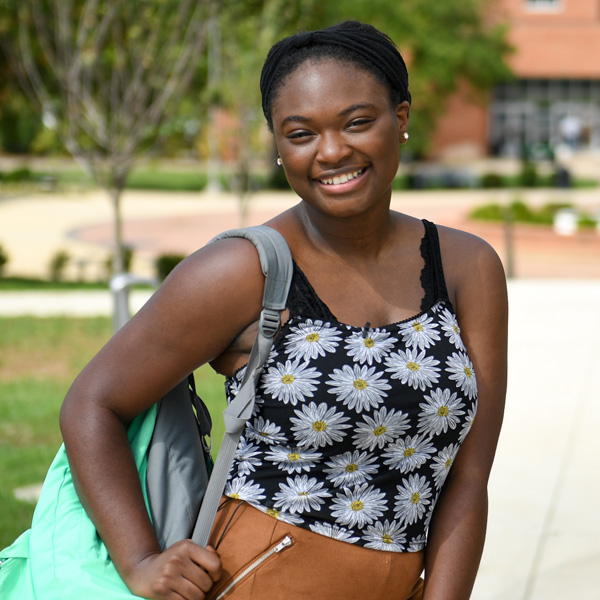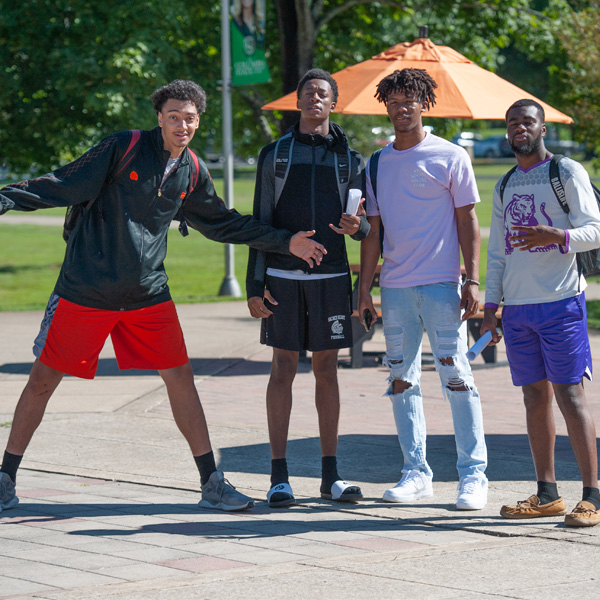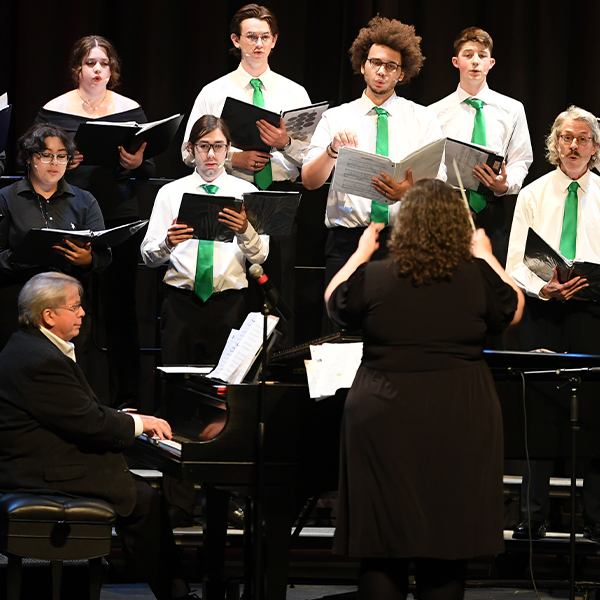Columbia State Biology Students Excel in Undergraduate Research
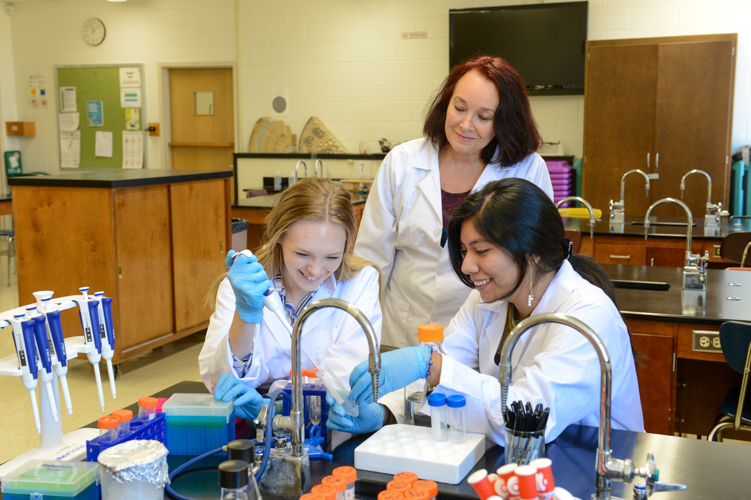
(COLUMBIA, Tenn. – Feb. 21, 2020) - - - Columbia State Community College students recently published research with the Howard Hughes Medical Institute Science Education Alliance-Phage Hunters Advancing Genomics Evolutionary Science program.
The research was later presented by Jenna St. Pierre, Columbia State student, and Ximena Leon, Columbia State alumna, at the 129th Tennessee Academy of Science meeting during the poster presentations and placed first in the microbiology poster category. Johanna Fernandez-Solano, Columbia State student, placed second in the chemistry poster category. Greg Markov, Columbia State alumnus, placed second in the microbiology oral presentation category. Columbia State was the only community college that competed at TAS. Other competitors were from four-year universities and other research and science facilities across Tennessee.
Columbia State undergraduate biology research students discovered eight novel bacteriophages. Students collected the phages from soil samples around campus, examined the phages under a microscope and tested how well they infect and kill bacteria. The phages they discovered were then sent off to HHMI to be analyzed and logged in an international database. The students are now using the database for gene annotation.
“This project means a lot to me because during my first semester I had no idea what I wanted to do with biology,” said Jenna St. Pierre, Columbia State student. “After taking two research courses with Dr. Eivazova, I fell in love with research and the community that we have. This has impacted my education immensely. Few community college students can say they have undergraduate research experience under their belt.”
The rise of antibiotic resistance has fueled interest in bacteriophages as means to fight multidrug-resistant bacteria. Bacteriophage discovery is led by HHMI and carried out by students motivated by the idea that their phages may be used to help others. In the process, students gain valuable experience in the evidence-based learning.
“Columbia State students are making important contributions to science by discovering, analyzing and annotating new bacteriophages,” said Dr. Elvira Eivazova, Columbia State assistant professor of biology. “The HHMI phage collection is the largest in the world. The collection is largely generated by students across the nation, motivated by the idea that their phages may be used for therapeutic purposes.”
Undergraduate research is recognized by the Tennessee Board of Regents as a high-impact practice that acts as a learning tool to foster creativity, critical thinking and project ownership. Research experience contributes to student success and satisfaction and helps students with career choices.
The Columbia State biology department has two courses with discovery and project-based research components, Honors General Biology and Biology Research, which are conducted in collaboration with the HHMI. The courses are designed to provide an authentic research experience for students with little to no prior lab skills. Students learn general biology, electron microscopy, microbiology, molecular biology, math application and genomics along with writing, presentation, critical thinking and computer literacy skills.
Those interested in learning more about a degree in biology at Columbia State should visit www.ColumbiaState.edu/Biology.
To learn more about SEA-PHAGES, visit www.seaphages.org. To learn more about TAS, visit www.tennacadofsci.org.
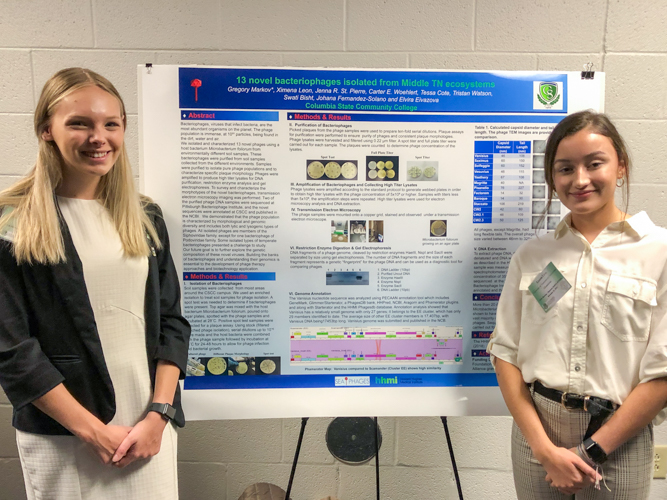
Photo Caption: Pictured (left to right): Jenna St. Pierre (Columbia) and Ximena Leon (Lewisburg) place first in microbiology for phage discovery at the 129th Tennessee Academy of Science. Not Pictured: Tessa Coté (Mt. Pleasant) and Greg Markov (Franklin).
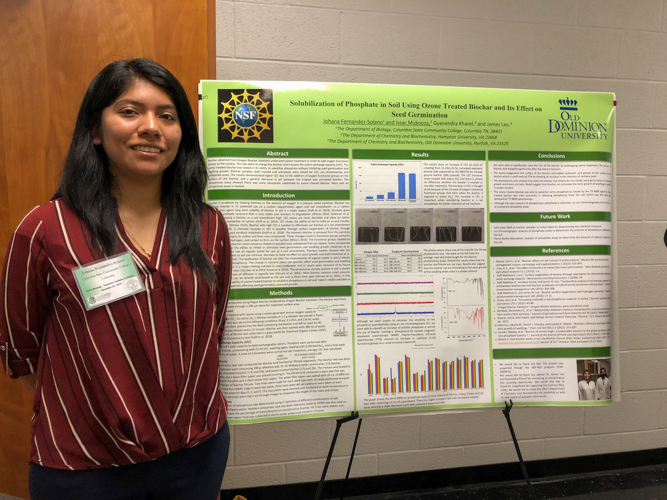
Photo Caption: Johana Fernandez-Solano (Culleoka) places second in chemistry at the 129th meeting of the Tennessee Academy of Science. Fernandez-Solano presented research she conducted while participating in a summer research program at Old Dominion University. During the program, she studied the development of biochar and whether or not ozone-treated biochar is able to help dissolve phosphorus in the soil and potentially be used as a soil amendment.
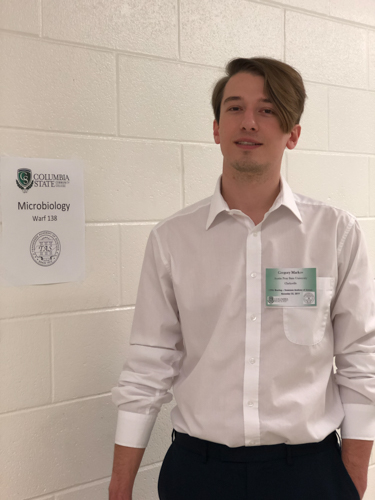
Photo Caption: Greg Markov (Franklin) places second in the microbiology oral presentation for phage genome annotation.


